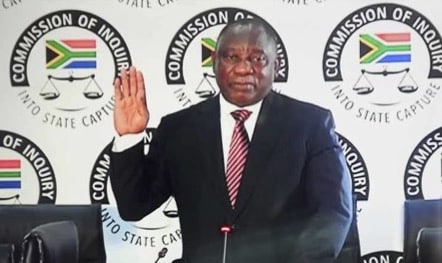Cabinet recently adopted the ‘National Framework for Professionalisation of the Public Sector’, which aims at elevating merit as the guiding principle for recruitment into the public service.
There is also space for the ‘depoliticisation’ of the public service, as well as moves towards professionalisation which include compulsory pre-entry courses for middle and senior officials. But lost in the excitement around moves toward ‘merit’ and a more ‘capable state’, it should not be forgotten that cadre deployment remains a central pillar of ANC ideology and policy.
Cadre deployment is one of the best tools that the ANC has used to take South African society and the economy on the long-term path towards the National Democratic Revolution (NDR). For the ANC, the mixing of party with state must necessarily happen, as the party is charged with transforming society to better reflect its values and vision. There can be delays and temporary blockages – and in this particular instance, lip service to ‘reforms’ and ‘changes’ in policy – but these are useful smokescreens to distract attention from the fundamental processes that are always in play.
There might well be surface-level ‘overtures’ that cadre deployment will be changed. But at base, the party’s guiding ideology requires precisely such tools. It would no longer be the ANC if it abandoned cadre deployment at the first opportunity.
Mixing party with state, as well as state with economy and society, to the levels that South Africa steadily has, was always going to produce perverse incentives, corruption, and state capture. Those with the necessary political influence and connections are able to influence policies and regulations to ensure they and their families (and other connections) win out, while lowering the vast majority of citizens’ economic freedom, and their ability to create wealth for themselves. Bigger businesses and corporates too appreciate a bigger government which gives them ample space to lobby for anti-free-market regulations that inhibit the growth of new competitors.
It is the view of Chief Justice Raymond Zondo that cadre deployment provided the door for state capture to enter the room. Zondo found cadre deployment violated both the Constitution and the Public Service Act. In his appearance before the Zondo Commission, Ramaphosa defended the policy. In his view – and arguably in the eyes of many within the party – it is only a matter of getting the ‘right’ people into the necessary positions. There is no possibility that the ideology and system itself is the problem, only the failings of individual people within the system.
The framework itself advises that, ‘Cadre deployment ought to be ditched.’ However, through a combination of remaining committed to ideology, as well as pure pragmatism in retaining patronage networks and control over the state (and various institutions and levers thereof), it is highly unlikely that the ANC will do anything so radical as to “ditch” one of its core commitments. Furthermore, as the party comes under more pressure leading into the 2024 general election, brute reality will push its representatives toward simply maximising as great a return as possible while they still have access to state resources.
With every day that passes under the current status quo, patronage networks and corrupt agreements – enabled by cadre deployment – all over the country become more entrenched. As people become more desperate in a low-growth, high-unemployment environment, they have a greater incentive to engage in riskier and more violent behaviour, and acquire or maintain those connections that are necessary for their future income and well-being.
It will take a long, long time to break and reverse the process and systems of cadre deployment. Absent such an undertaking, ordinary South Africans’ economic and legal freedoms will always be at risk or under assault. Until such a time, the public overtures towards ‘reform’ that are offered at, for example, state-owned entities, should not be seen as any kind of new dawn.
[Photo: Henk Kruger/African News Agency (ANA) Archives]
If you like what you have just read, support the Daily Friend.
Click here for a free 30-day trial with the CRA.

